Object of the Week: The Midsummer Night’s Dream Show
-
Graham Foster
- 10th April 2017
-
category
- Object of the Week
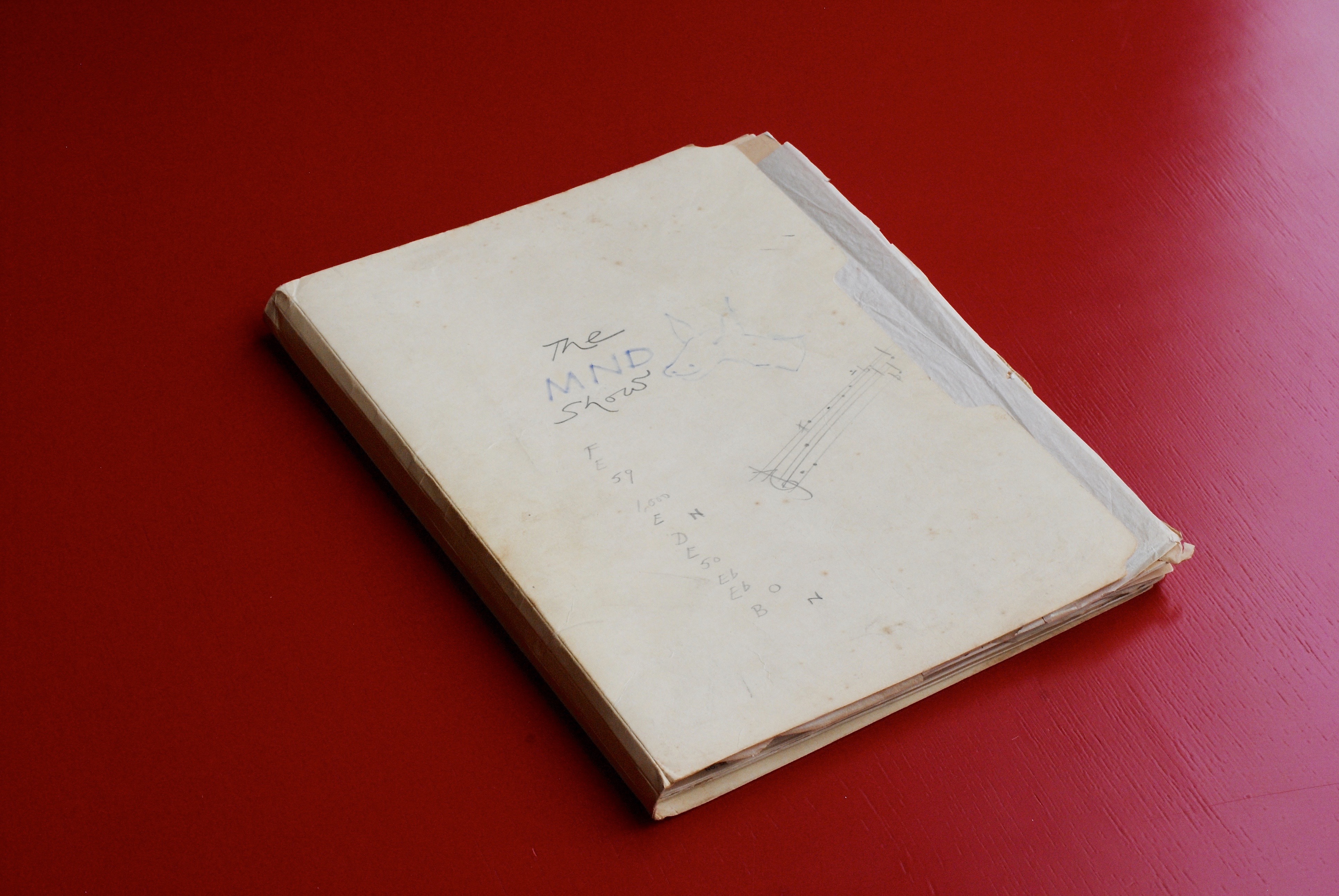
In 1972, Burgess collaborated with the composer Stanley Silverman on a version of Sophocles’s Oedipus the King for the Tyrone Guthrie Theater in Minnesota. This production, notable for Burgess’s invention of language based on Indo-European, premiered that year, and was revived in 2017 as a radio play on BBC Radio 3. Oedipus the King was a critical and commercial success in Minnesota, and was repeated as part of the Guthrie Theater’s 1973 season, by which point Burgess and Silverman had started a new collaboration.
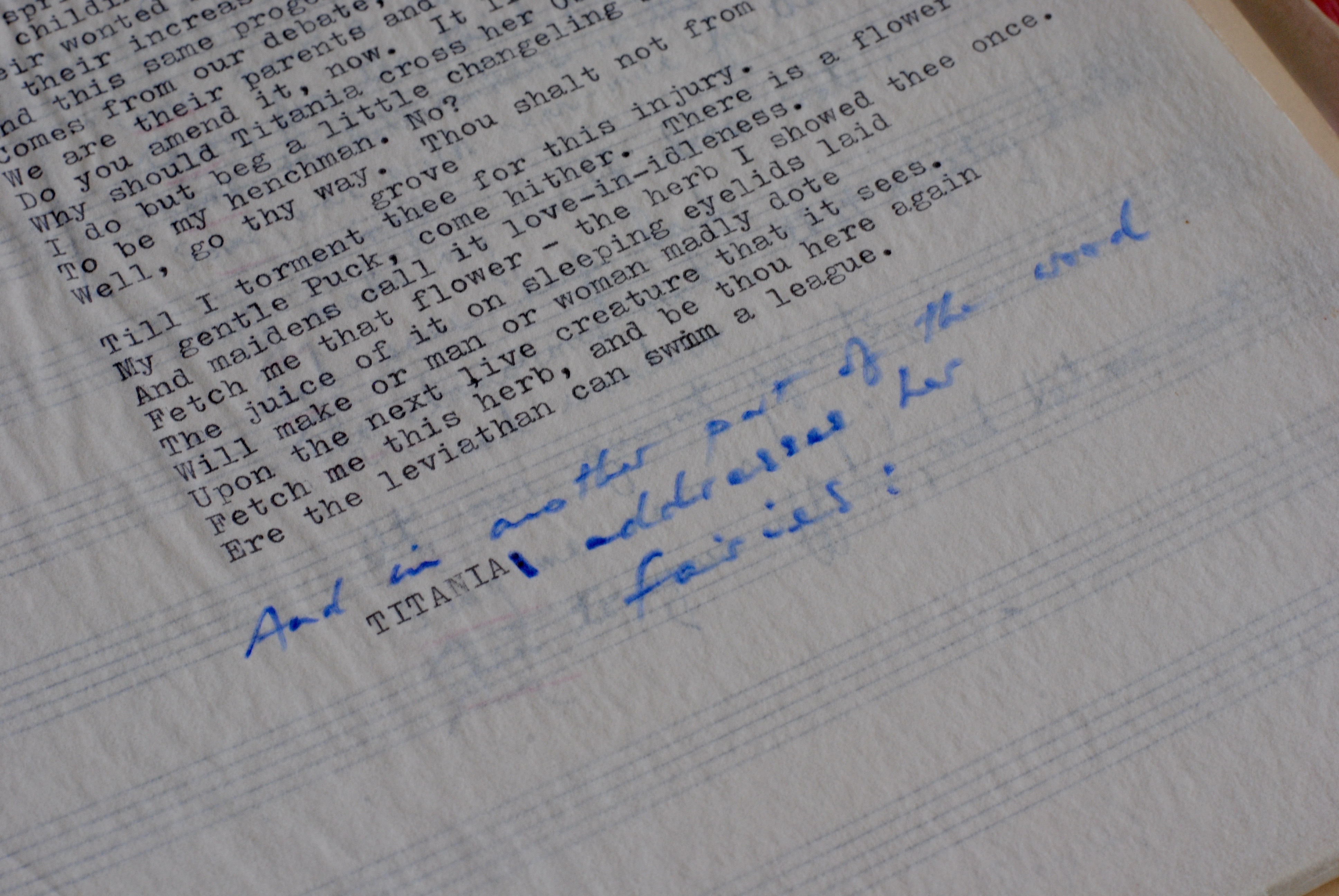
The Midsummer Night’s Dream Show (or The MND Show) features original music by Silverman and a narrative based on Shakespeare’s original words by Burgess. Silverman’s music was taken from his score for a full performance of A Midsummer Night’s Dream in Stratford, Ontario in 1968. The original performance at the Whitney Museum in New York on 16 May 1973 (alongside a new, abbreviated narrative version of Oedipus), had Burgess performing the narration himself. Silverman recalls the reaction: ‘The big surprise for me was when you looked out at the audience they were speechless and I realised it wasn’t just celebrity talking.’
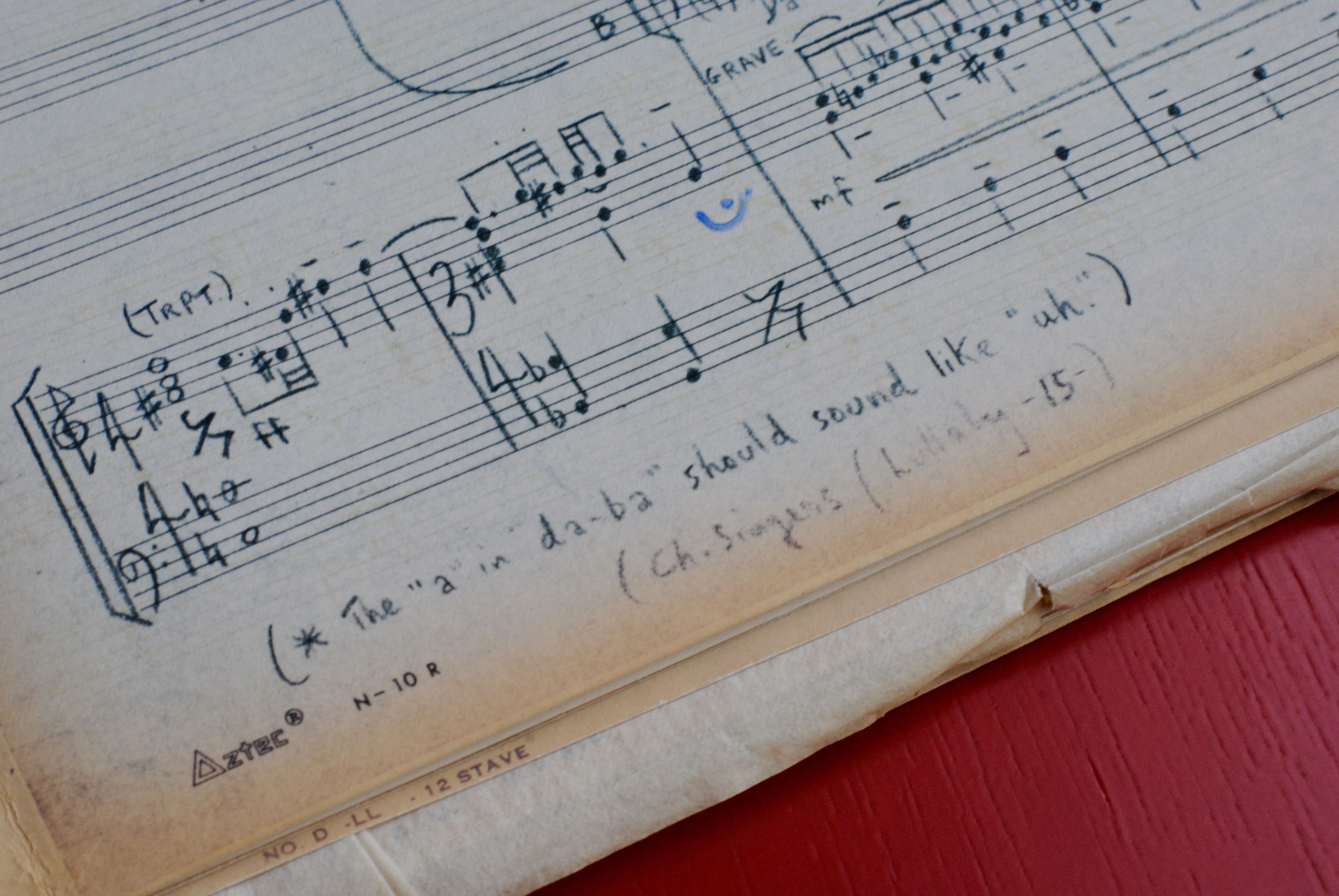
The manuscript of The MND Show in the archives of the Burgess Foundation shows Burgess’s narration, typed onto extremely thin paper and taped to Silverman’s original score. On the cover, Burgess has doodled Bottom, and included a coded reference to composer Felix Mendelssohn, who wrote a ballet based on A Midsummer Night’s Dream.
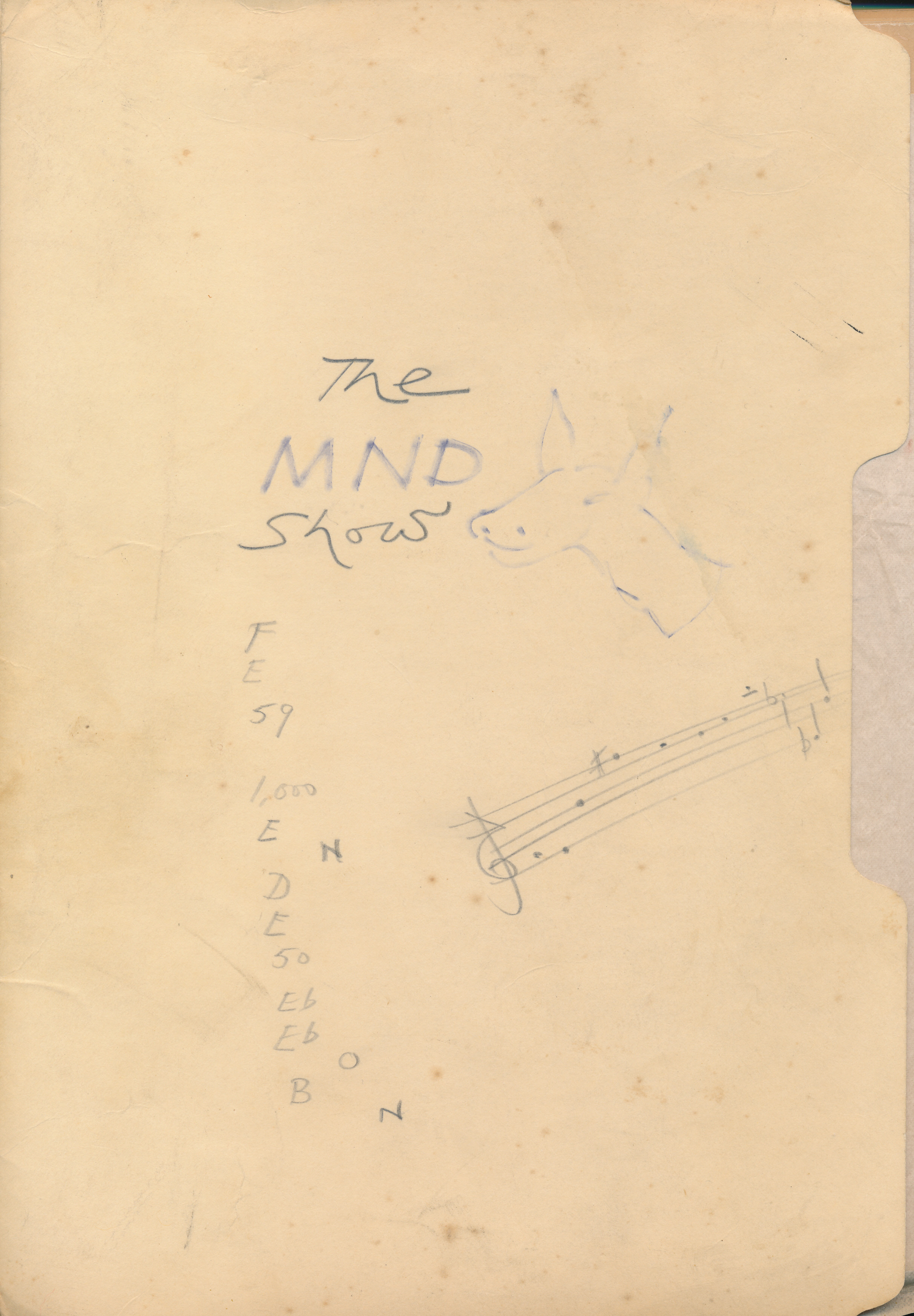
Silverman has included an epigraph to the music quoting Renaissance composer John Dowland: ‘…wherein I have mixed new songs with olde, grave with light, that every eare may receive his severall content… And as I had in these an earnest desire to satisfie all, I do likewise hope that the peruse will as gratefully entertaine my endeavours, as they were friendly meant…’
While most of Burgess’s words are taken directly from Shakespeare’s play, he does include some of his own stage direction: ‘This scene is Athens or Warwickshire or London or New York and the theme is marriage. Let Theseus speak first’. At the end of the narration, Burgess quotes Shakespeare’s line ‘Give us your hands if we be friends/And Robin shall restore amends.’ He has crossed out ‘Robin’ and inserted ‘Stanley & Roland etc etc etc & Anthony’. This refers to Stanley Silverman, conductor Roland Gagnon, and, of course, Burgess himself.
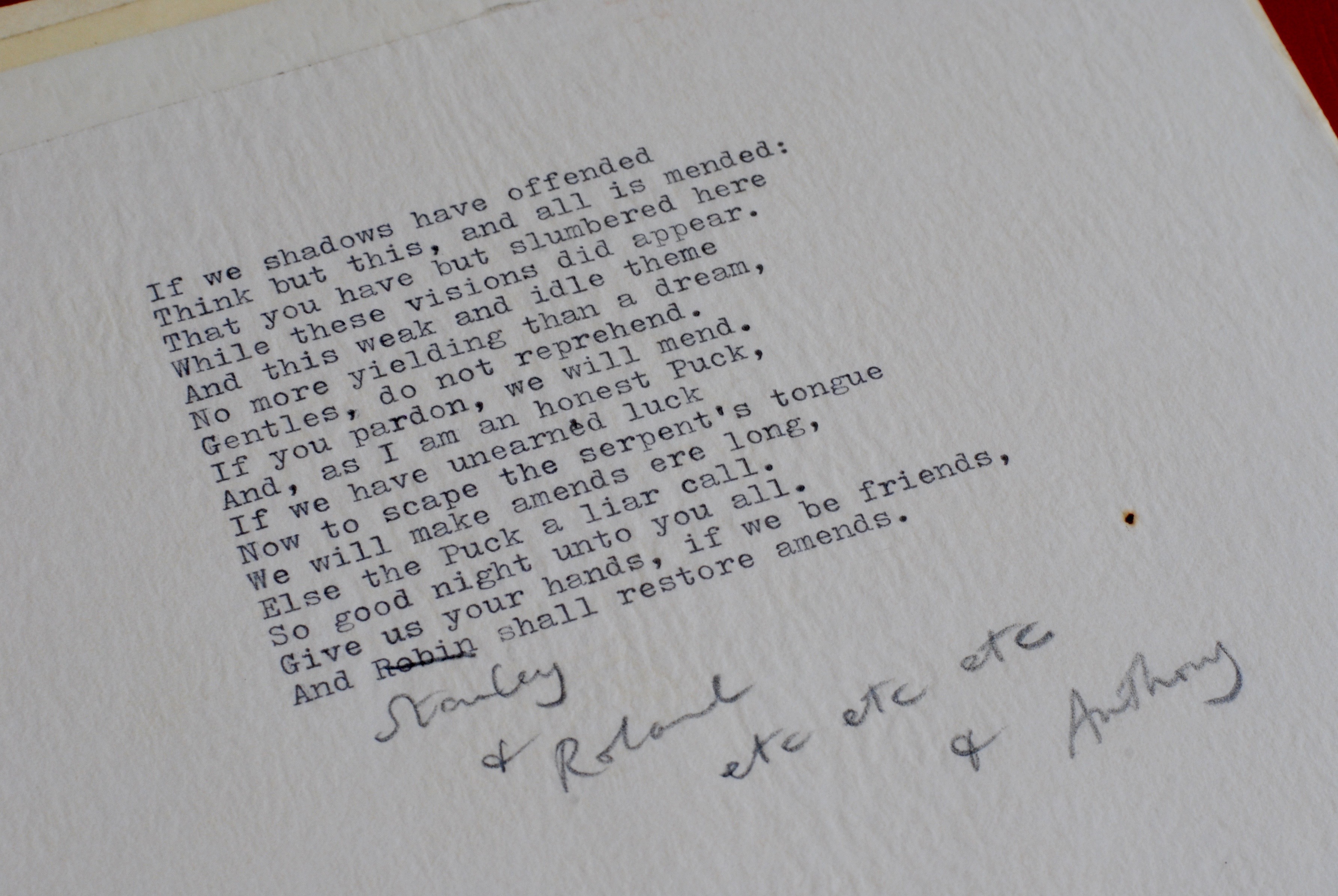
Burgess and Silverman never brought another collaboration to completion. They attempted to work together on a musical about Trotsky, and they were commissioned by the Chamber Music Society of Lincoln Center, New York to do a concert piece for two sopranos, Beverly Sills and Eileen Farrell. Silverman recalls their first meeting: ‘We went to meet with the women at Sills’s apartment on Central Park West. He smoked in front of the two sopranos and they were hysterical. They were so angry. That didn’t work out at all.’
Burgess and Silverman remained friends until Burgess’s death in 1993.



